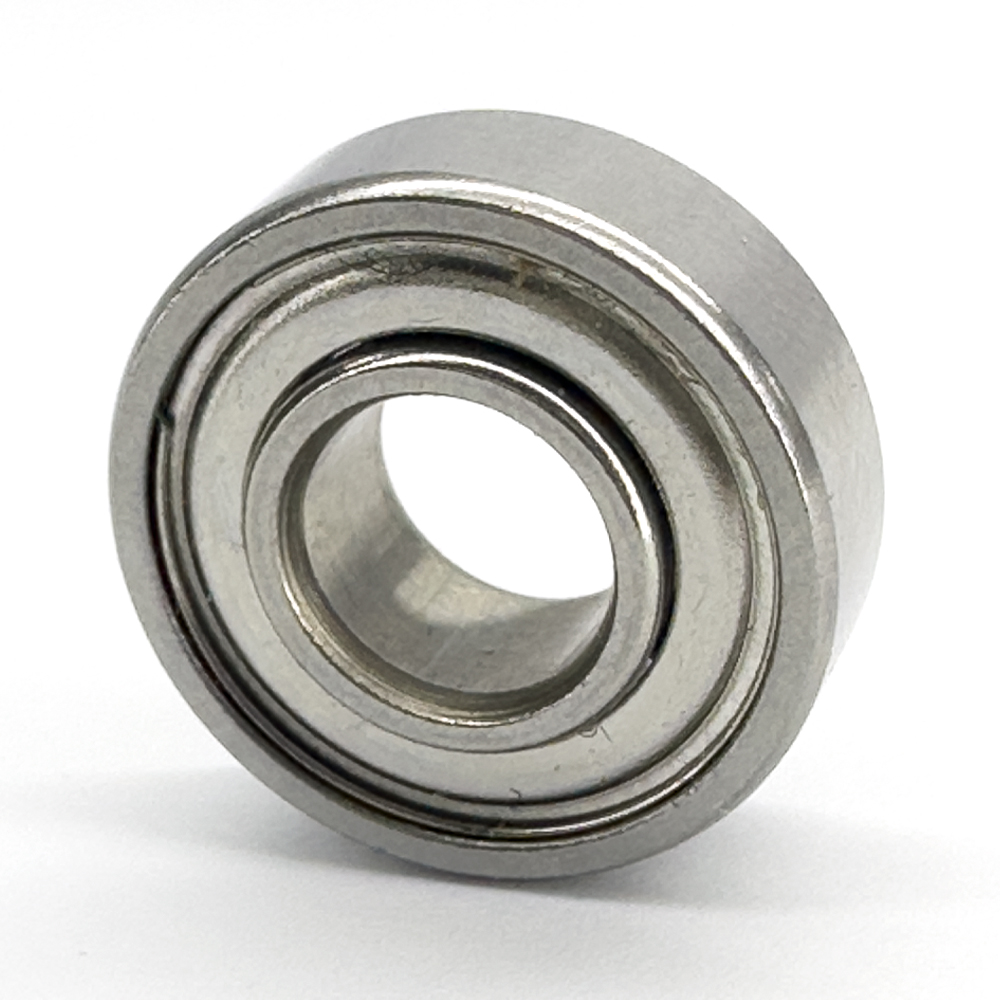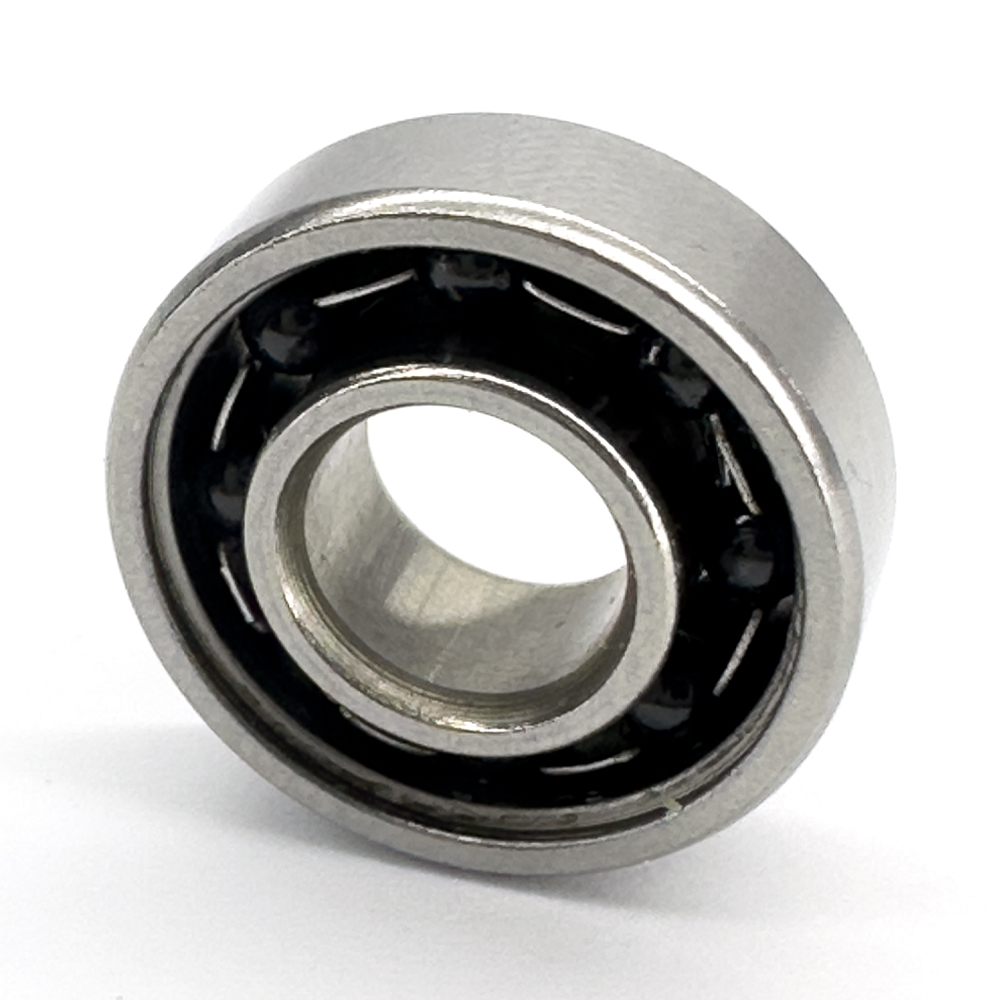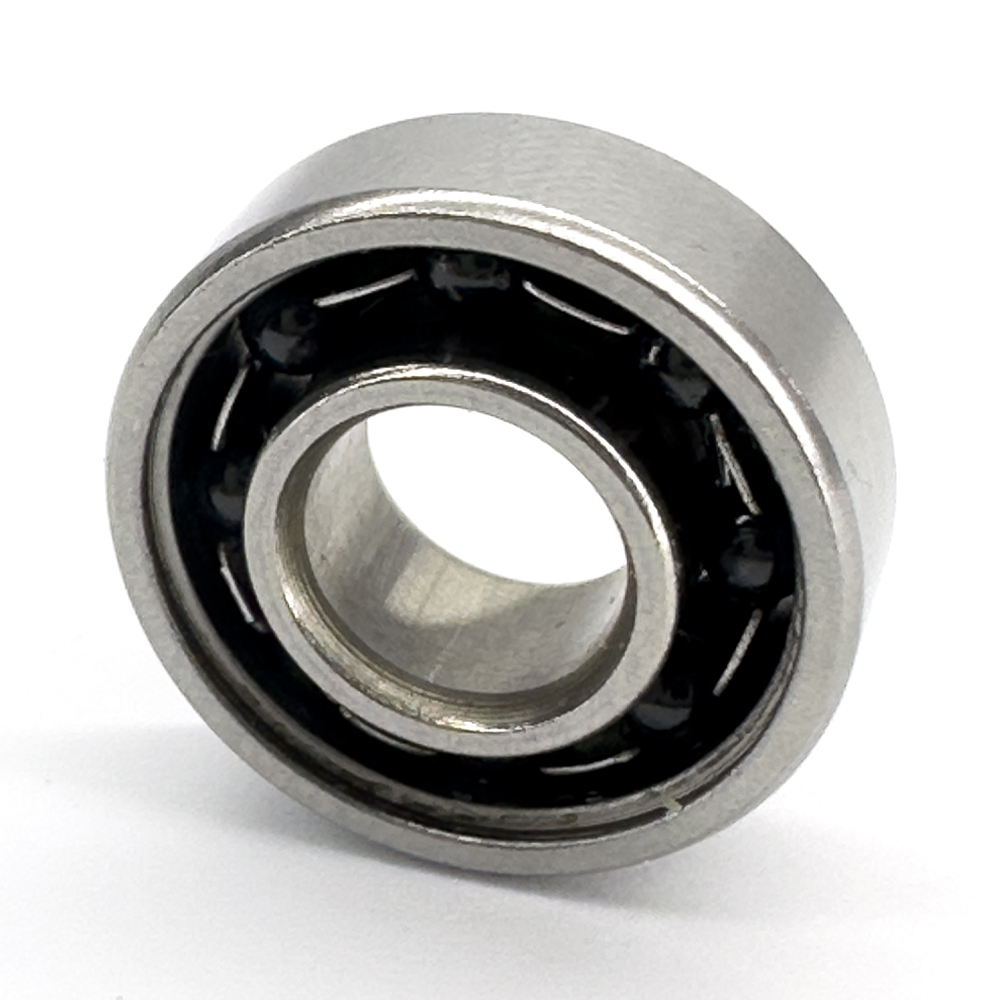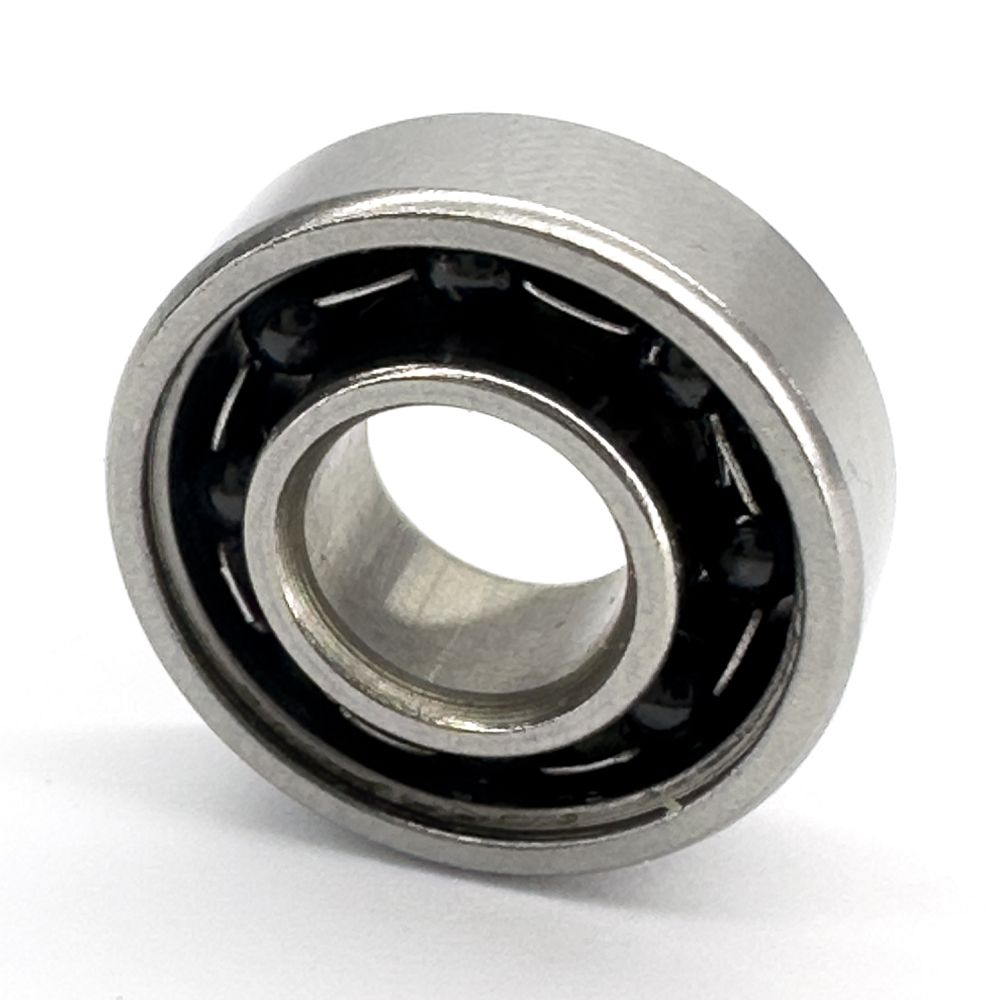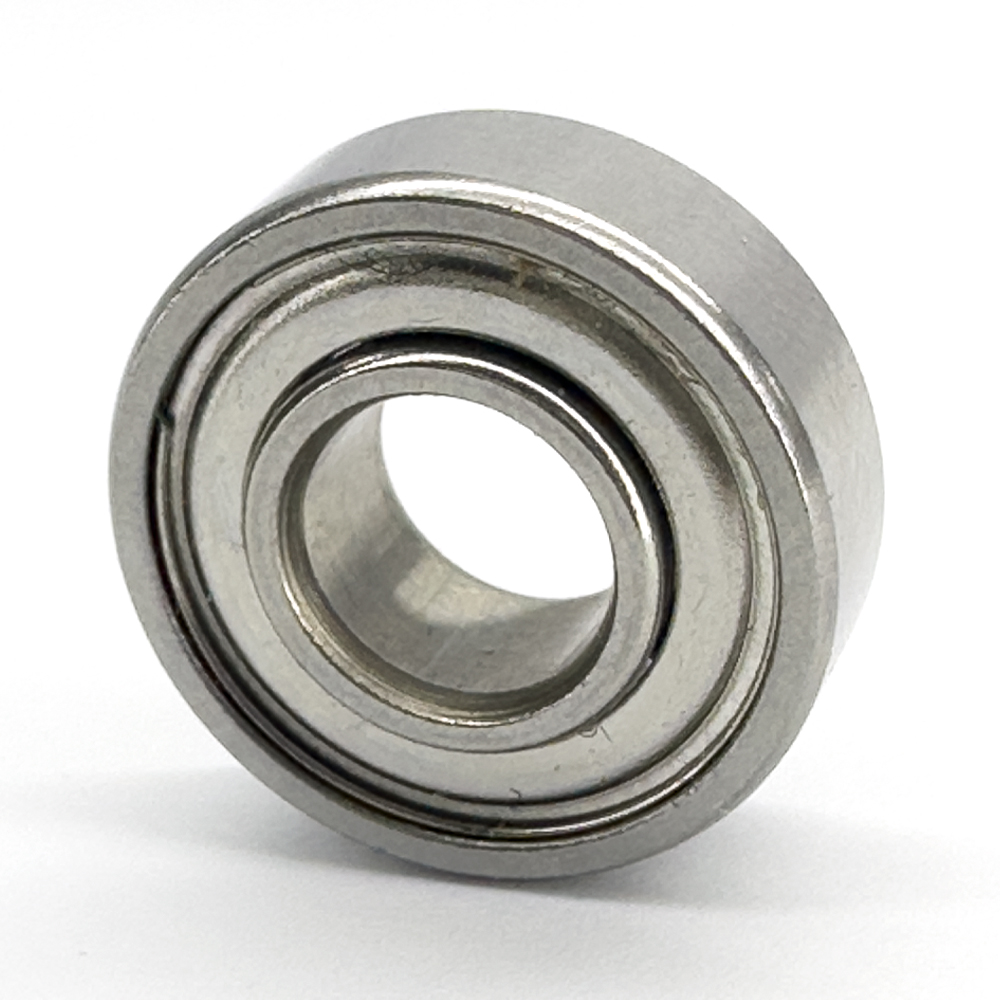RW188zz

| Part Number | RW188zz |
| System of Measurement | Inch |
| Bearing Type | Ball |
| For Load Direction | Radial |
| Construction | Single Row |
| Inner Ring Type | Extended |
| Seal Type | Shielded |
| Bore Dia | 0.25" |
| Bore Dia Tolerance | -0.0003" to 0" |
| Outer Dia | 0.5" |
| Outer Dia Tolerance | -0.0003" to 0" |
| Width | 0.1875" |
| Width Tolerance | -0.005" to 0" |
| Inner Ring Outer Dia | 0.33" |
| Inner Ring Width | 0.2188" |
| Ring Material | Chrome Steel |
| Ball Material | Chrome Steel |
| Cage Material | 300 Series Stainless Steel |
| Shield Material | 300 Series Stainless Steel |
| Dynamic Radial Load | 207 lbf |
| Static Radial Load | 80 lbf |
| Max Speed (X1000 rpm) | 40 |
| Lubrication | Required |
| Shaft Mount Type | Press Fit |
| Temperature Range | -86 to 230 °F |
| ABEC Rating | ABEC1 (Available in ABEC3/5/7) |
| Radial Clearance Trade No | MC3 (Available in MC1/2/4/5/6) |
| Radial Clearance | 0.00008" to 0.0005" |
| RoHS | Compliant |
| REACH | Compliant |
| Ball Dia | 0.0787" |
| Ball Qty | 8 |
| Weight | 2.32 g |
Design Features of RW188zz Bearing
RW188zz Bearing is designed to provide a cost-effective solution for applications where space is limited and shafts are too short for standard ball bearings. RW188zz bore dia is 0.25". Its out dia is 0.5". RW188zz ball material is Chrome Steel. Its seal type is Shielded. The extended inner ring provides additional support for the shaft, allowing for improved performance and longevity. This bearing also has high-speed capabilities, low friction, and reduced noise levels, ensuring optimal performance in a range of industrial applications.
Applications of RW188zz Bearing
RW188zz Bearing is used across a wide range of industries that demand high precision and compact design, including but not limited to Motors, Flow Meters, Medical Instruments, Vacuum Pumps and instrumentation. It is also utilized in Galvanometers, Gas Meters and Industrial Encoders, etc. Due to its small size and dependable performance, this bearing is a popular choice for applications where space is limited but precision is crucial.
Maintenance and Troubleshooting Tips of RW188zz Bearing
Regular maintenance is crucial for optimal performance and longevity of RW188zz Bearing. Frequent inspection for signs of damage, wear, or contamination is necessary. Clean the bearing with a non-corrosive solvent and dry it thoroughly before lubrication. Replace any bearing that shows signs of damage or excessive wear. Troubleshoot any issues with the application to ensure that the bearing is being used within its designed parameters to prevent premature failure or damage.


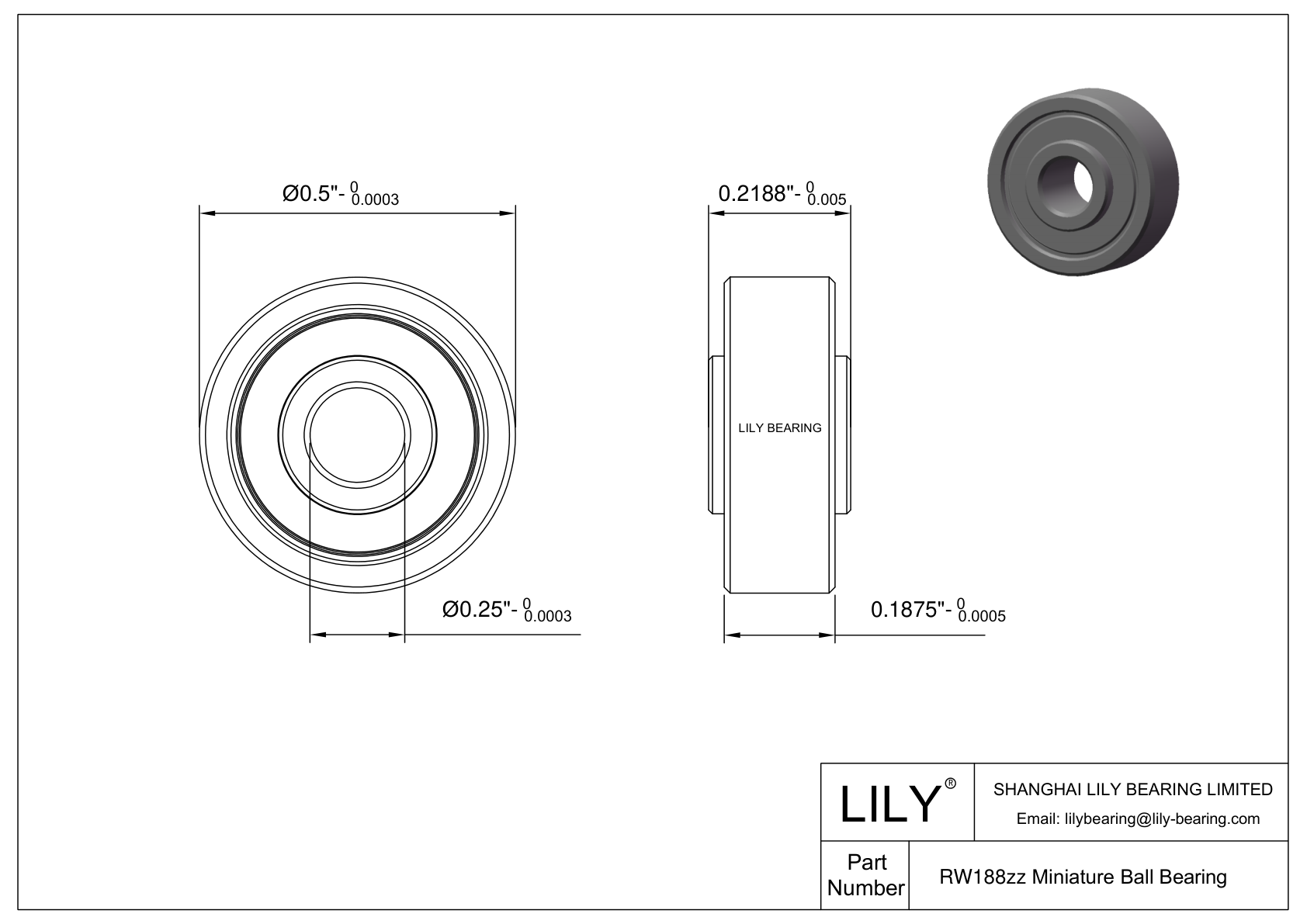

})
